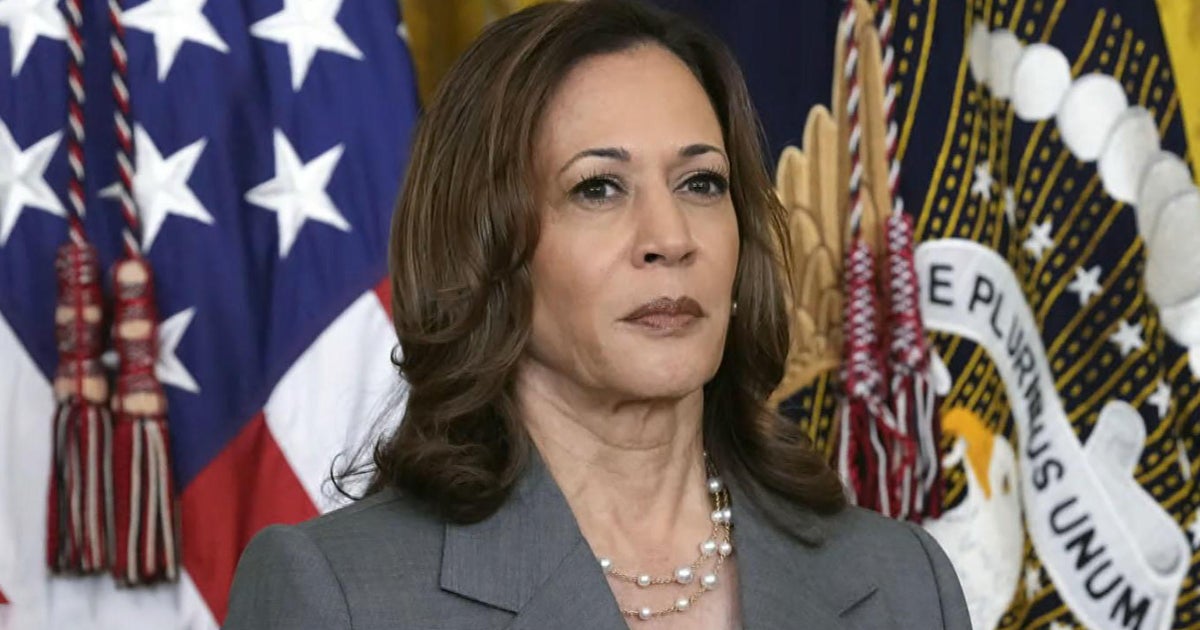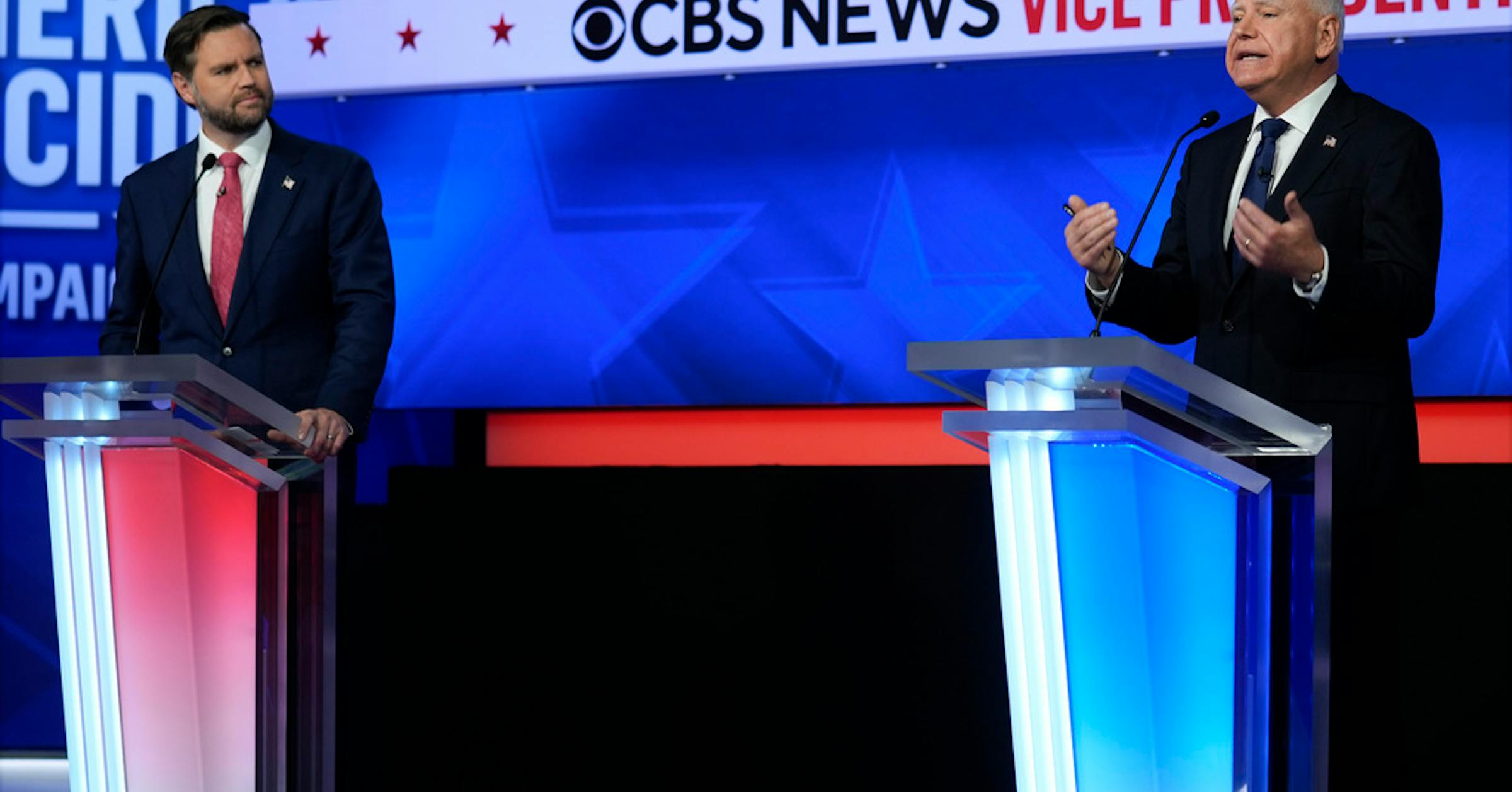CBS News
Doctors take on dental duties to reach low-income and uninsured patients
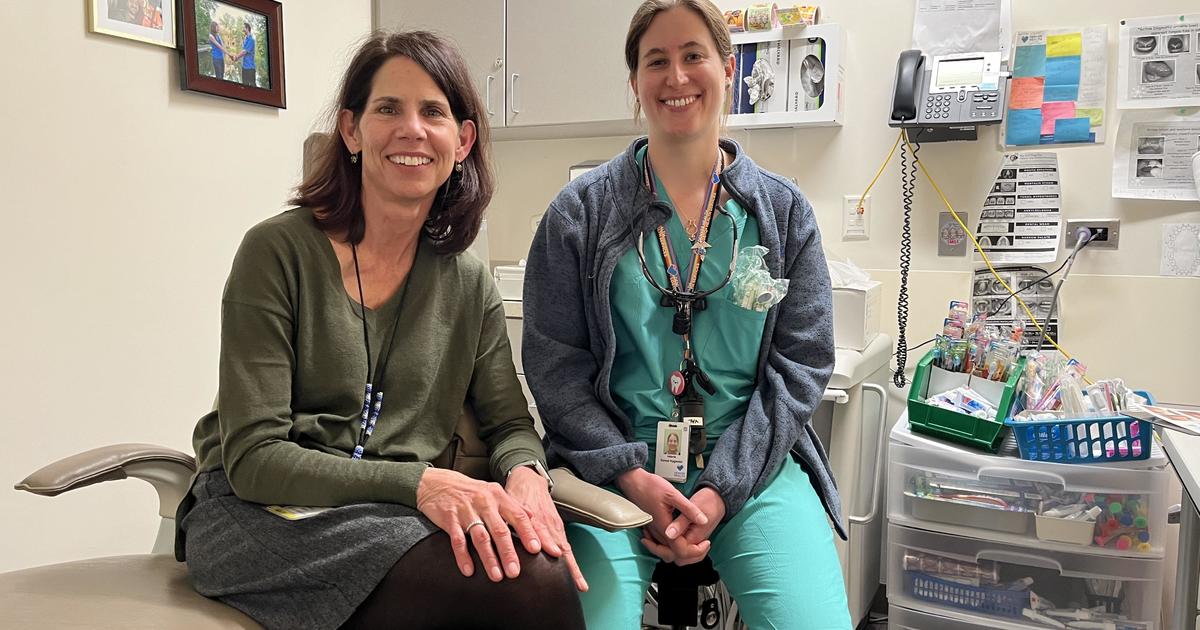
DENVER — Pediatrician Patricia Braun and her team saw roughly 100 children at a community health clinic on a recent Monday. They gave flu shots and treatments for illnesses like ear infections. But Braun also did something most primary care doctors don’t. She peered inside mouths searching for cavities or she brushed fluoride varnish on their teeth.
“We’re seeing more oral disease than the general population. There is a bigger need,” Braun said of the patients she treats at Bernard F. Gipson Eastside Family Health Center, which is part of Denver Health, the largest safety-net hospital in Colorado, serving low-income, uninsured, and underinsured residents.
Braun is part of a trend across the United States to integrate oral health into medical checkups for children, pregnant women, and others who cannot afford or do not have easy access to dentists. With federal and private funding, these programs have expanded in the past 10 years, but they face socioeconomic barriers, workforce shortages, and the challenge of dealing with the needs of new immigrants.
With a five-year, $6 million federal grant, Braun and her colleagues have helped train 250 primary care providers in oral health in Colorado, Montana, Wyoming, and Arizona. Similar projects are wrapping up in Illinois, Michigan, Virginia, and New York, funded by the federal Health Resources and Services Administration’s Maternal and Child Health Bureau. Beyond assessment, education, and preventive care, primary care providers refer patients to on- or off-site dentists, or work with embedded dental hygienists as part of their practice.
Kate Ruder for KFF Health News
“Federally qualified health centers have a long history of co-locating dental services within their systems,” Braun said. “We’re taking that next step where care is not just co-located, meaning, say, we’re upstairs and dental is downstairs, but we’re integrated so that it becomes part of the same visit for the patient.”
Having doctors, nurses, and physician assistants who assess oral health, make referrals, and apply fluoride at community health centers is critical for the many children who lack access to dental care, said Tara Callaghan, director of operations for the Montana Primary Care Association, which represents 14 federally qualified health centers and five Urban Indian organizations.
“Providing these services during medical visits increases the frequency of fluoride application,” Callaghan said, and “improves parents’ knowledge of caring for their child’s teeth.” But obstacles remain.
Because of Montana’s large geographic area and small population, recruiting dental professionals is difficult, Callaghan said. Fifty of the state’s 56 counties are designated dental shortage areas and some counties don’t have a single dentist who takes Medicaid, she added. Montana ranks near the bottom for residents having access to fluoridated water, which can prevent cavities and strengthen teeth.
Pediatric dental specialists, in particular, are scarce in rural areas, with families sometimes driving hours to neighboring counties for care, she said.
Embedding dental hygienists with medical doctors is one way to reach patients in a single medical visit.
Valerie Cuzella, a registered dental hygienist, works closely with Braun and others at Denver Health, which serves nearly half of the city’s children and has embedded hygienists in five of its clinics that see children.
State regulations vary on which services hygienists can provide without supervision from a dentist. In Colorado, Cuzella can, among other things, independently perform X-rays and apply silver diamine fluoride, a tool to harden teeth and slow decay. She does all this in a cozy corner office.
Braun and Cuzella work so closely that they often finish each other’s sentences. Throughout the day they text each other, taking advantage of brief lulls when Cuzella can pop into an exam room to check for gum disease or demonstrate good brushing habits. Braun herself takes similar opportunities to assess oral health during her exams, and both focus on educating parents.
Medical and dental care have traditionally been siloed. “Schools are getting better at interprofessional collaboration and education, but by and large we train separately, we practice separately,” said Katy Battani, a registered dental hygienist and assistant professor at Georgetown University.
Battani is trying to bridge the divide by helping community health centers in nine states — including California, Texas, and Maryland — integrate dental care into prenatal visits for pregnant women. Pregnancy creates opportunities to improve oral health because some women gain dental coverage with Medicaid and see providers at least once a month, Battani said.
In Denver, housing instability, language barriers, lack of transportation, and the “astronomical cost” of dentistry without insurance make dental care inaccessible for many children, the migrant community, and seniors, said Sung Cho, a dentist who oversees the dental program at STRIDE Community Health Center, serving the Denver metro area.
STRIDE tries to overcome these barriers by offering interpretation services and a sliding pay scale for those without insurance. That includes people like Celinda Ochoa, 35, of Wheat Ridge, who waited at STRIDE Community Health Center while her 15-year-old son, Alexander, had his teeth cleaned. He was flagged for dental care during a past medical checkup and now he and his three siblings regularly see a dentist and hygienist at STRIDE.
One of Ochoa’s children has Medicaid dental coverage, but her three others are uninsured, and they couldn’t otherwise afford dental care, said Ochoa. STRIDE offers an exam, X-rays, and cleaning for $60 for the uninsured.
In the past year, Cho has seen an influx of migrants and refugees who have never seen a dentist before and need extensive care. Medical exams for refugees at STRIDE increased to 1,700 in 2023 from 1,300 in 2022, said Ryn Moravec, STRIDE’s director of development. She estimates the program has seen 800 to 1,000 new immigrants in 2024.
Kate Ruder for KFF Health News
Even with growing needs, Cho said the Medicaid “unwinding” — the process underway to reexamine post-pandemic eligibility for the government program that provides health coverage for people with low incomes and disabilities — has created financial uncertainty. He said he worries about meeting the upfront costs of new staff and of replacing aging dental equipment.
At STRIDE’s Wheat Ridge clinic, two hygienists float between dental and pediatrics as part of the medical-dental integration. Yet Cho said he needs more hygienists at other locations to keep up with demand. The pandemic created bottlenecks of need that are only now being slowly cleared, particularly because few dentists take Medicaid. If they do accept it, they often limit the number of Medicaid patients they’ll take, said Moravec. Ideally, STRIDE could hire two hygienists and three dental assistants, Moravec said.
In 2022, Colorado enacted a law to alleviate workforce shortages by allowing dental therapists — midlevel providers who do preventive and restorative care — to practice. But Colorado does not have any schools to train or accredit them.
Before age 3, children are scheduled to see a pediatrician for 12 well visits, a metric that medical and dental integration capitalizes on, particularly for at-risk children. As part of Braun’s program in the Rocky Mountain region, providers have applied more than 17,000 fluoride varnishes and increased the percentage of children 3 and younger who received preventive oral health care to 78% from 33% in its first 2½ years.
Callaghan, at the Montana Primary Care Association, witnesses that on the ground at community health centers in Montana. “It’s about leveraging the fact that kids see their medical provider for a well-child visit much more often and before they see their dental provider — if they have one.”
KFF Health News is a national newsroom that produces in-depth journalism about health issues and is one of the core operating programs at KFF — the independent source for health policy research, polling, and journalism.
CBS News
Transcript: Catherine Russell on “Face the Nation with Margaret Brennan,” Oct. 6, 2024
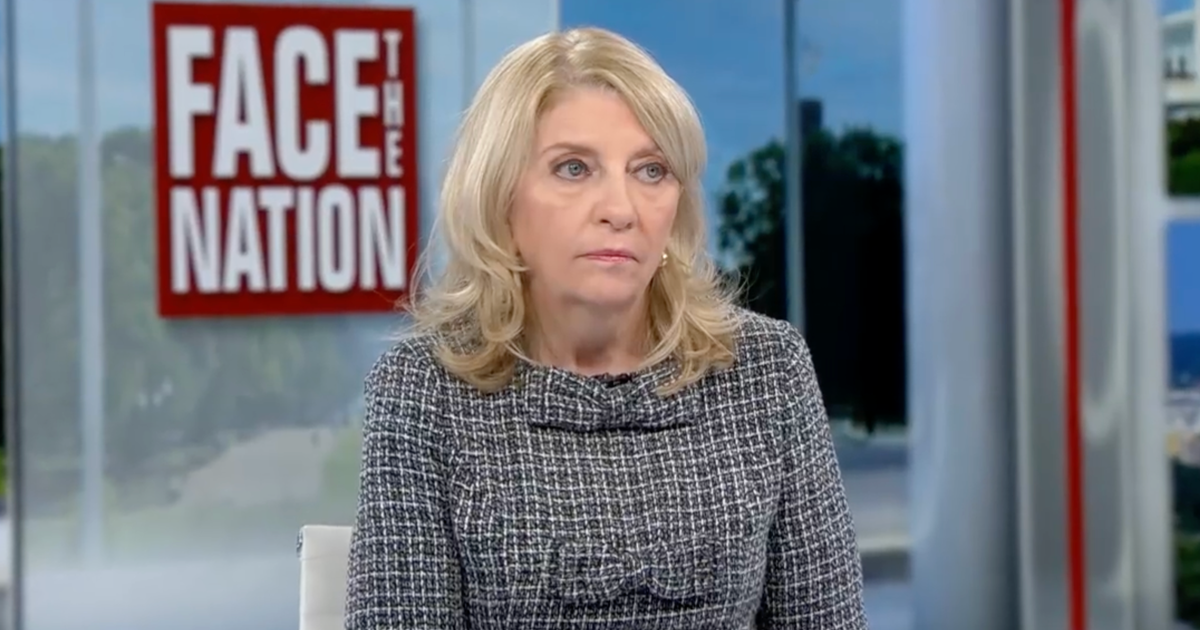
The following is a transcript of an interview with Catherine Russell, UNICEF executive director, on “Face the Nation with Margaret Brennan” that aired on Oct. 6, 2024.
MARGARET BRENNAN: Catherine Russell is the executive director of UNICEF, the UN agency that helps disadvantaged children around the world. Good morning to you. I know you’re deeply concerned, you’ve said, by what is happening right now in Lebanon, 1000s of children on the streets or in shelters because they’ve had to flee without supplies. What does the speed of this escalation do to your ability to help these kids?
CATHERINE RUSSELL: Well, I think the speed and intensity is shocking, honestly, and it does make it challenging for us. However, we have been in Lebanon. We’re on the ground there. We are doing a lot of work, moving in tons of supplies, medical supplies and other supplies. But I think the challenge is that the population, about a million people, have been displaced, and so that kind of movement makes it very challenging to try to provide the services that people need. But I think, you know, we’re there. We’re doing it. Obviously we need more resources. It’s always a challenge. But I think I feel confident at this point that we can, we can meet the needs, but it takes, it’s taking a tremendous amount of effort on our part to do it.
MARGARET BRENNAN: The UN Refugee chief, one of your colleagues, said today that the strikes on Lebanon had violated international humanitarian law. Is that affecting your workers?
CATHERINE RUSSELL: You know, it’s, I would say, for humanitarian workers, the last year has been so challenging. I mean, we have lost a record number of humanitarian workers around the world. There are so many conflicts going on in so many places where they’re so vulnerable. And of course, you know, as the head of this, my operation, I worry constantly about our teams there and our staff there. And I think UNHCR, who you’re referring to, they did lose two staff people in Lebanon. And that’s a crushing thing to happen, because these people are so amazing, and they risk their lives every day to try to help children and desperate people. And to see that happen is really crushing.
MARGARET BRENNAN: UNRWA told CBS that they are heading down the track, to quote, a man made disaster again in Gaza. I was told the food deliveries have been continuously declining since May. There are law and order challenges, that’s part of the problem. 1 million people didn’t get food in August. That number now is 1.4 million. How bad is the malnutrition and the hygiene and the mental health of kids there?
CATHERINE RUSSELL: It’s all terrible. And I think if you look at Gaza really through the eyes of a child, it’s a hellscape for children. They’ve been moved multiple times. They know people, their family members, who’ve been killed, they’ve been injured. They don’t have enough food to eat, they don’t have enough water, they don’t have clean water. I think these children, you know, you mentioned it earlier, they’re so traumatized by what’s happening. And I think the notion that we can even, even if we can get more supplies in there, the trauma that these children are suffering is going to have lifetime and even post generational challenges for them, because it’s just so profound. And it’s been almost a year of this. They really-it’s hard to imagine what that’s like for a child. You know, you can’t really imagine anything comparable for them. And I think they have no security, they have no certainty in life. They’re just really suffering every single day.
MARGARET BRENNAN : But you were able to get polio shots into kids. How come you can’t get them food?
CATHERINE RUSSELL 3:16
Yeah, it’s such a good question. You know, we, I mean, first I would say it’s terrible that we had to go in and do polio vaccinations. Right. There hadn’t been polio in Gaza for years, decades, really. And of course, we started to see some cases of it. That’s because they’re living in such terrible conditions, the water is dirty and all the rest of it. So we were able, with other UN agencies, to go in and vaccinate children for polio- vaccinated well over half a million children. I mean, 500 million children. It was a, it was a real success story. And I think the important point about that is it shows that if the authorities there help us make it possible for us to do our work, we can do it. We can definitely do it, but we need more support so that there’s security. As you say, there is not security right now. it’s very dangerous to move things around. The roads are a mess. We get stuck at checkpoints. I mean, it’s just one logistical problem after another. And I think the polio lesson is we can do it, and they can help us do it if they choose to.
MARGARET BRENNAN: If there’s coordinated international pressure to allow for it. Moving away from the Middle East and to Africa. I know Sudan is an issue you have been trying to put on the world’s radar for some time. Nearly 4 million children under five are acutely malnourished, and there’s a cholera outbreak. Can you break through there, another war zone?
CATHERINE RUSSELL: Sudan is, is the most alarming place for me at the moment because of the scale of it. Right? It is the largest displacement crisis in the world and the largest hunger problem in the world. We have already declared that there is famine in part of Sudan. Right? Children are grossly malnourished, and children are on the verge of famine in many places where it hasn’t already been declared. There’s also incredible violence. Children are moving constantly. They’re very vulnerable. I was there, you know, several months ago, and the stories I heard were heartbreaking, of what children had seen and experienced. Of this 19 million children who live in Sudan, 17 million have been out of school for over a year.
MARGARET BRENNAN: 17 out of 19 million children are out of school?
CATHERINE RUSSELL: Are out of school, yes, for over a year, right? What kind of life is this? They can’t get medical supplies. It’s really challenging for them. But I will say this, I met with some children in a camp that UNICEF supports, and the amazing thing was, they could still talk to me about the future,their hope for the future. Which I, you know, I’m always struck by this, that children are children everywhere, and even in the most desperate places they can have hope. But the international community has got to do better, and in Sudan, everyone has got to put pressure on the parties to stop the fighting and to stop making lives so miserable for children.
MARGARET BRENNAN: Catherine Russell, thank you.
CATHERINE RUSSELL: Thanks.
MARGARET BRENNAN: We’ll be back in a moment.
CBS News
Transcript: Ret. Gen. Frank McKenzie on “Face the Nation with Margaret Brennan,” Oct. 6, 2024
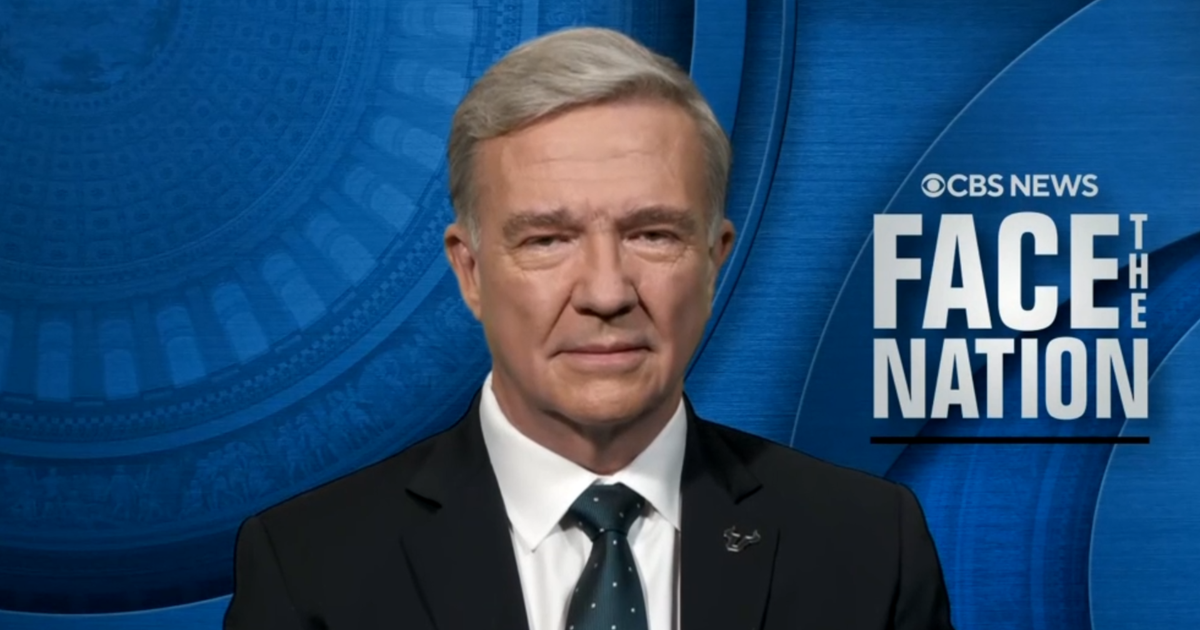
The following is a transcript of an interview with retired Gen. Frank McKenzie, former commander of U.S. forces in the Middle East, on “Face the Nation with Margaret Brennan” that aired on Oct. 6, 2024.
MARGARET BRENNAN: To discuss the ongoing conflict in the Middle East, we go now to retired General Frank McKenzie, who was the former commander of US forces in the Middle East. It’s good to have you back with us, General, we saw–
GENERAL FRANK MCKENZIE: Good to be with you, Margaret.
MARGARET BRENNAN: We saw the US and Israel say there would be severe consequences for what Iran did with those 180 missiles fired at Israel, President Biden said he doesn’t support an Israeli strike on Iran’s nuclear facilities, and he’d be thinking instead about alternative targets to oil fields. What do you expect the US to do, and what do you expect to happen in the next few days?
GEN. MCKENZIE: Well, Margaret, let’s begin by saying Iran is the country that’s in a corner. Their strike against Israel several nights ago was not particularly successful. Their principal ally in the region, Hezbollah has been decapitated, and its own offensive capability is gravely limited. Hezbollah’s is gravely limited. So Iran’s on their back heel. Israel has a lot of choices here. They can choose for something that would be very escalatory in terms of a strike against the Supreme Leader himself, perhaps, or against the nuclear program, or against the oil infrastructure, or they could look at military intelligence targets. They have a wide variety of options that they can choose from. They have the capability to execute most of those attacks, I will say this, the nuclear target is a very difficult target. It’s large and complex. I held the plans for that when I was a central command commander. I’m very familiar with it. There are a lot of other alternatives to that target that perhaps you could go after first, then hold out in case you get into an escalatory ladder with the Iranians. But the Israelis are certainly going to hit back, and I predict it will be larger than the very restrained, very modulated response that we saw in April after the first large Iranian attack on Israel.
MARGARET BRENNAN: You heard the Republican Chair of the House Intelligence Committee not advocate for an attack on nuclear facilities, but say it shouldn’t be taken off the table. It’s been widely reported for some time, General that it’s only the United States who could effectively take out the underground facilities that Iran has. Does that remain the case?
GEN. MCKENZIE: Well, let me begin by saying you should never take a potential target off the menu. You want your adversary to have to plan to defend everything. So giving-giving them assistance and not knowing and not-not having to defend against a particular target is probably not the best way to establish this kind of deterrence. Having said that, the Iranian nuclear target is a very difficult target, we have special capabilities that allow us to get at it. The Israelis do not have all of those capabilities. They can certainly hurt this target if they choose to, if they choose to strike it. But again, because of its size, complexity and scope and how it’s expanded over the last 10 years, it’s a very difficult target to take out. It would be very resource intensive, and I would just, I would argue, just from a purely military point of view, there are perhaps targets that are more productive to hit in an initial response.
MARGARET BRENNAN: Do you want to give us some options?
GEN. MCKENZIE: Well, again, you know, we talked about some of them. I think oil infrastructure is certainly a possibility. And the oil infrastructure can be very broad. You can look at refineries, you can look at storage facilities, you can look at locations where the oil is unloaded onto ships. So within the oil target, it’s not monolithic. You can- you can be escalatory or less escalatory, as you look at targets there. That might be something to take a look at, but I’ll tell you the other thing, Margaret, is the Iranians made a big show of targeting the Mossad headquarters in urban Tel Aviv. Israel certainly has the capability to go after IRGC, Islamic Republican Guard Corps headquarters and intelligence buildings all around Tehran or anywhere else. Again, as we know from April, Israel has the ability to operate not with impunity, but with great force over Iran at a time and place of their choosing. And I’m sure they’re thinking about all those options right now.
MARGARET BRENNAN: There’s also that risk of unintended consequences, since you’ve characterized Iran as cornered here, are you at all concerned that this could be the kind of event that would trigger them to actually pursue a nuclear weapon? They’ve given themselves options, but they’ve never fully pursued it in the way that US intelligence has said the supreme leader would have to make the ultimate decision to do. Could this be the trigger event?
GEN. MCKENZIE: Margaret, it’s always been my belief that the Iranians flirt with breakout, with getting fissile material to create a bomb in order to extract concessions from us, because we dance, we’re very eager to come to an agreement with them on the nuclear issue, so they know they can get stuff from us. They also know if they cross that line, you can’t go back. That’s a Rubicon that can’t be recrossed. But even if they, even if they do develop the fissile material, which they can do, within a matter of days or weeks, they still have a delivery problem. They’ve got to create a missile and an entry system that will allow it to take the missile to Tel Aviv or whatever target they choose. That’s a matter of many months, and that’s the valley of death for Iran, because during that period of time, they will have declared nuclear, and they will be vulnerable. It’s not a physics problem, then it’s an aeronautical engineering problem, and the aeronautical engineering systems in Iran are going to be vulnerable to attack. So it’s not as easy as you might think for them to just declare, you know, we’re going nuclear, or to go nuclear. They’ve got to balance a number of things as they do that.
MARGARET BRENNAN: Important context. If I can ask you, sir, former President Trump, as you know, faces an ongoing assassination threat as revenge for ordering the killing of Qassim Soleimani, that Iranian general. You played a key role in that, and I know you face threats as well. Mr. Trump recently said, big threats on my life by Iran. The entire US military is watching and waiting. The Biden White House has condemned the threats, but some Republicans say it’s not loud enough. How do you think this should be messaged? Do you think Iran is getting the message not to go through with this?
GEN. MCKENZIE: So whenever we look at Iran, we need to look at what’s their basic motivation. The principal goal of Iranian statecraft is regime preservation. They view the election of President Trump as a direct threat to that regime preservation. So I have no doubt believing that Iran is very active in its attempts to go after the former president, as well as other officials, of which I am keenly, personally interested as well. But I think that-that’s what’s driving their behavior. Is desperation. Margaret, it’s actually the same sort of desperation that drove the massive attack on Israel of three or four nights ago. They’re in a corner and they really don’t have any good options, but they don’t want to sit still and do nothing. They view President Trump as worse than the alternative that could be elected.
MARGARET BRENNAN: General, thank you for your analysis.
CBS News
Transcript: Sen. Mark Kelly on “Face the Nation with Margaret Brennan,” Oct. 6, 2024

The following is a transcript of an interview with Sen. Mark Kelly, Democrat of Arizona, on “Face the Nation with Margaret Brennan” that aired on Oct. 6, 2024.
MARGARET BRENNAN: Joining us now is Arizona’s Democratic Senator, Mark Kelly. He’s in Detroit this morning on the campaign trail for the Harris campaign. Good morning to you, Senator.
SEN. MARK KELLY: Good morning, Margaret.
MARGARET BRENNAN: I want to talk to you about Arizona, but let’s start in Michigan, which is where you are right now. And it is going to be such a key state to a potential Harris or Trump victory. Vice President Harris is facing challenges among black men, working class people, as well as the Muslim and Arab populations skeptical of the White House support for Israel’s wars. What are you hearing on the ground there from voters?
SEN. KELLY: Well, my wife, Gabby Giffords, and I have been out here for a couple days. We’ve been campaigning across the country, Michigan, I’ve been in North Carolina, Georgia as well. I’ll be back to Arizona here soon. The vice president was out here speaking to Muslim organizations and the Arab community about what is at stake in this election and addressing the concerns that they have. What we’re hearing, issues about the economy, about gun violence, about, you know, supporting American families and the difference between Donald Trump and Kamala Harris. You know, Kamala Harris, who has a vision for the future of this country, Donald Trump, who just wants to drag us backwards.
MARGARET BRENNAN: Today in Dearborn, Michigan, there’s a funeral service for an American man who was killed in Lebanon by an Israeli airstrike. It just underscores how that community you’re talking about out in Michigan feel some of what’s happening in a personal way to their community. Given how close this race is, do you think this war and the expectation it could escalate could cost Democrats both a seat in the Senate and potentially the presidency?
SEN. KELLY: Margaret, nobody wants to see escalation and it’s tragic when any innocent person, whether it’s an American or Palestinian, lose their life in a conflict. Tomorrow’s one year since October 7th, when Israel was violently attacked. Israel has a right to defend itself, not only from Hamas, but from Hezbollah and from the Iranians. But, you know, I and my wife, you know, we feel for the community here who’s been affected by this. And that’s why the vice president was out here earlier, a few days ago, meeting with that community.
MARGARET BRENNAN: But it’s a live issue.
SEN. KELLY: Yeah, sure. I mean, there is an ongoing conflict in the Middle East. Israel is, you know, fighting a war now on, I think it’s fair to say, two fronts and then being attacked by the Iranians as well. And, they- they need to defend themselves, and we need to support our Israeli ally. At the same time, when women and children lose their life, innocent people in a conflict, it is- it is tragic.
MARGARET BRENNAN: You do sit on the Senate Intelligence Committee and so I know you know how intense the efforts are by foreign actors to try to manipulate voters going into November. Just this Friday, Matthew Olsen, the lead on election threats at the Department of Justice, told CBS the Russians are, quote, highlighting immigration as a wedge issue. That is such a key issue in Arizona. Are you seeing targeted information operations really focusing in on Arizonans right now?
SEN. KELLY: Not only in Arizona, in other battleground states. It’s the Russians, the Chinese, the Iranians, and it’s significant. And we need to do a better job getting the message out to the American people that there is a huge amount of misinformation. If you’re looking at stuff on Twitter, on TikTok, on Facebook, on Instagram, and it’s political in nature, and you may- might think that that person responding to that political article or who made that meme up is an American. It could be- it could look like a U.S. service member. There is a very reasonable chance I would put it in the 20 to 30% range, that the content you are seeing, the comments you are seeing, are coming from one of those three countries: Russia, Iran, China. We had a hearing recently, with the FBI director, the DNI, and the head of the National Security Agency. And we talked about this. And we talked about getting the word out. And it’s up to us, so thank you for asking me the question, because it’s up to us, the people who serve in Congress and the White House to get the information out there, that there is a tremendous amount of misinformation in this election, and it’s not going to stop on November 5th.
MARGARET BRENNAN: Understood. And we will do our best to help parse that for viewers. But on the topic of the border, President Biden did announce just this past week new regulations to keep in place that partial asylum ban that he rolled out back in June. That’s what’s credited with helping to bring down some of the border crossing numbers in recent weeks. It was supposed to be a temporary policy, dependent on how many people were crossing at a time. Do you think this is the right long term policy, or is this just a gimmick to bring down numbers ahead of the election?
SEN. KELLY: Well, the right long term policy is to do this through legislation. And we were a day or two away from doing that, passing strong border security legislation supported by the vice president, negotiated by the vice president, and the president and his Department of Homeland Security, with Democrats and Republicans–
MARGARET BRENNAN: But this is not legislation.
SEN. KELLY: –This is bipartisan. This isn’t. But the legislation was killed by Donald Trump. We were really close to getting it passed. That’s the correct way to do this. When you can’t do that, Margaret, when a former president interrupts the legislative process the way he did, which is the most hypocritical thing I’ve ever seen in my three and a half years in the Senate. After that happened, the only other option is executive actions. And this has gone from what was chaos and a crisis at our southern border to somewhat manageable. And if you’re the border- Border Patrol, you know, this is this- you need this. I mean, otherwise it is unsafe for Border Patrol agents, for CBP officers, for migrants, for communities in southern Arizona. So it’s unfortunate that this was the- these were the steps that had to be taken.
MARGARET BRENNAN: Okay.
SEN. KELLY: But that’s because the former president didn’t allow us to do this through legislation.
MARGARET BRENNAN: Senator, we have to leave it right there. Face the Nation will be right back.






